NZ Young Farmers: Rob Barry
Rob Barry is a central Hawke’s Bay farmer who has recently been elected to the NZ Young Farmers board
The 27-year-old’s passion for the environment has won him several accolades and threads through everything he does on farm. A pair of fantails flit above Robert Barry’s head as he bends down to inspect a predator trap at the base of a totara tree.
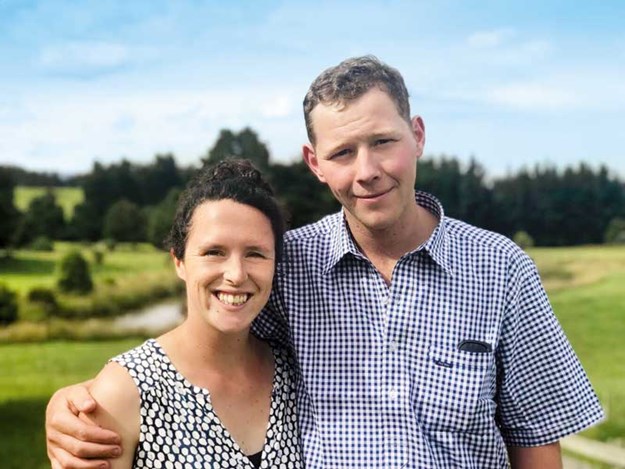 |
|
Alison and Robert Barry
|
The towering native is in a pristine bush block on a farm owned by the BEL Group near Waipukurau in central Hawke’s Bay. The eight-hectare block is protected by a Queen Elizabeth II Trust covenant and is dotted with almost a dozen traps.
"We have quite an extensive trapping programme here," says Robert, as he points to two dead rodents.
The canopy of the bush block is teeming with birds. The haunting call of a tui drowns out the faint chirp of the fantails. This area is known to attract ferrets, stoats, weasels, rats, mice and, occasionally, possums, which prey on the birds and their eggs.
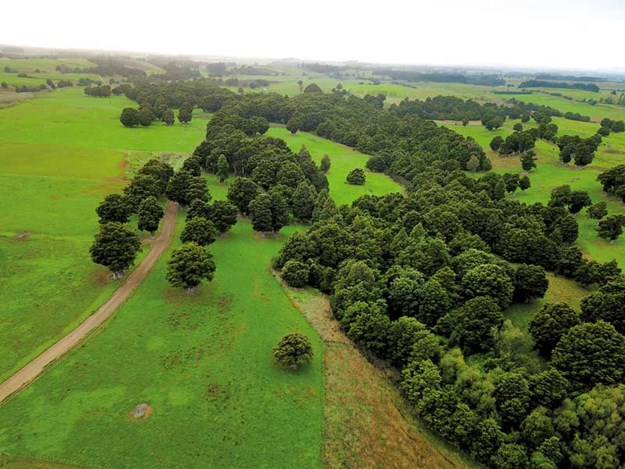 |
|
The QE2 bush block on one of the BEL Groups properties
|
Robert is using a ground-breaking trap developed by NZ Autotraps. The trap resets and rebaits itself, improving the kill rate.
"The great thing about these traps is that they aren’t labour-intensive and they kill a range of predator species," says the Tikokino Young Farmers member. The 27-year-old’s passion for the environment has won him several accolades and landed him a new job. In February, he was appointed the sustainability lead for the BEL Group, which farms 3700 hectares (effective).
.jpg) |
|
One of the predator traps in the QE2 bush block
|
The business was started by Robert’s mother Andrea and his late father Peter in the 1990s and now employs 70 full-time staff. About 9000 cows are milked across nine dairy farms. The business owns or leases a further eight dairy support blocks.
Prior to taking on his new role, Robert was second-in-charge on one of the dairy farms. "This job is a great fit for me. I’m really passionate about improving dairying’s environmental footprint," says the father of two.
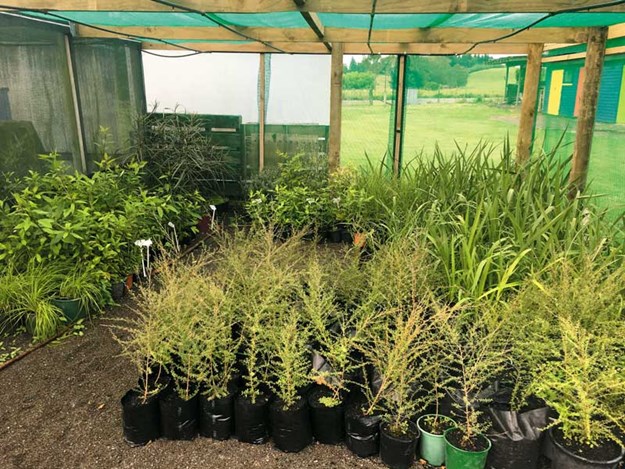 |
|
The shade house extension at Sherwood School which BEL Group helped fund
|
"I was always making suggestions to the BEL Group’s leadership team about ways we could improve our practices."
Not being in the milking shed every day has given Robert the opportunity to start implementing his ideas. The business overhauled its wintering practices this year, with the aim of reducing nitrate and sediment loss from crop paddocks.
"I think it’s something everyone can do," he says. "Being smart about where you plant your winter crops and how you feed them can lead to a big reduction in sediment runoff.
"It can often be as simple as putting up a back fence or using a portable water trough to help reduce soil damage," he says.
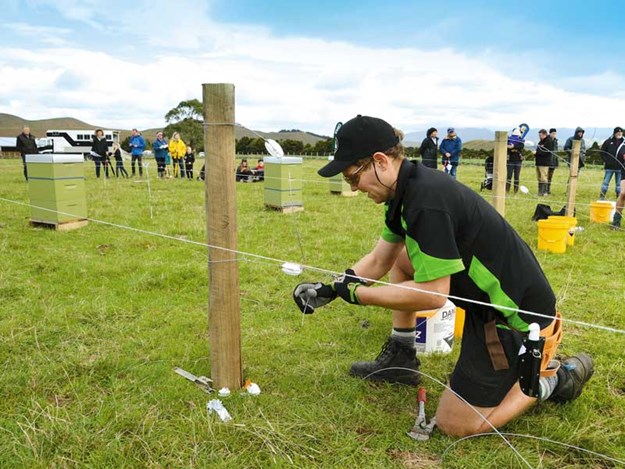 |
|
Robert Barry tests his fencing skills during the FMG Young Farmer of the Year regional final in Dannevirke
|
Grazing sections of crop growing near waterways or at the bottom of slopes last helps trap suspended contaminants.
About 50 of the business’ staff are involved with feeding-out to cows and young stock over the winter and shifting crop fences. Two full-time fencers have also been employed to fence off small ephemeral drains.
"Legally, we don’t need to fence them off. But there are areas that get wet and boggy in winter and if we reduce the number of cows walking through them, that can have a significant impact on water quality," he says.
The majority of the farms sit in the Tukipo River catchment, which has poor water quality. "The river doesn’t have the benefit of a large volume of fresh water flowing through it. It’s fed by springs on surrounding farmland," he says.
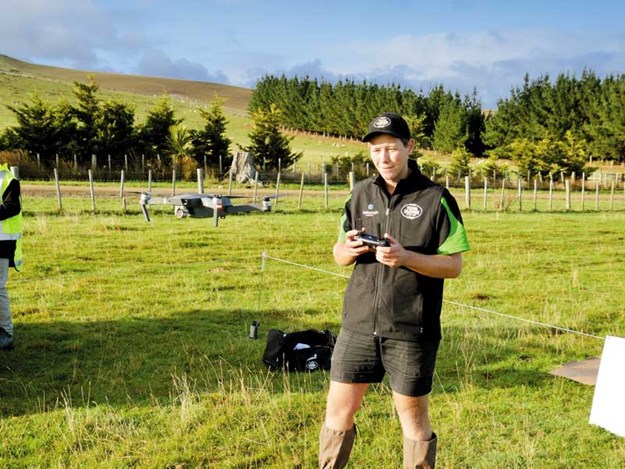 |
|
Robert Barry competed in the FMG Young Farmer of the Year regional final in Dannevirke, taking out third place
|
"Anything we can do to keep livestock out of those springs will make a difference." Green-thumbed students at the local school are helping to grow native plants and trees for the newly-protected areas.
BEL Group chipped in $4000 to help the school extend its shade house, which can now produce 1000 riparian plants a year. Robert is the chair of the Tukipo Catchment Care Group, which he founded in February 2018.
The farmer-led community group is focused on improving water quality, biodiversity, and their greenhouse gas footprint.
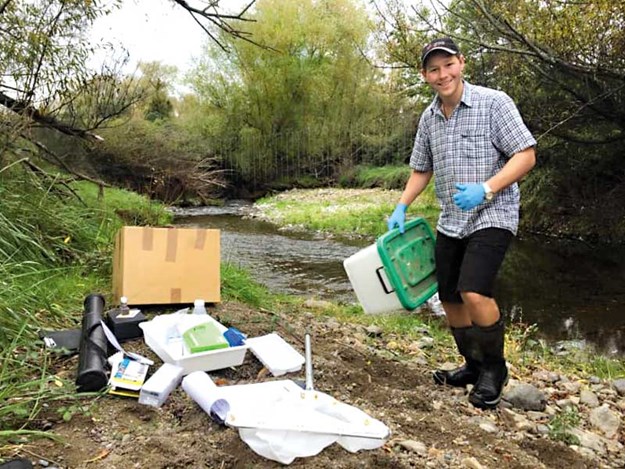 |
|
Robert Barry monitors his local stream using water testing kits funded by Fonterra
|
"This year, through the group, I have applied for and received $32,000 worth of funding from Fonterra to purchase water-testing kits and to find potential wetland sites," he says. Robert and his wife Alison were finalists in the 2018 Balance Farm Environment Awards for East Coast winning the Predator Free 2050 and DairyNZ Sustainable Farming Award. More recently he was elected to the NZ Young Farmers Board.
"I have been thinking about standing for the board for the last two years," says Robert. "To be elected and have the backing and support of my fellow members is an awesome feeling. I’m really happy."
Nine people were vying for two positions in the hotly-contested election. Robert saw joining the NZ Young Farmers Board as a unique opportunity for a young person to obtain governance experience.
"There aren’t many boards out there that have being under 31-years-old as a criteria, so it’s an amazing opportunity which I had to seize," he said. Robert has been elected to the NZ Young Farmers Board for a two-year term.
Find farm machinery for sale in NZ
Keep up to date in the industry by signing up to Farm Trader's free newsletter or liking us on Facebook



.jpg)
.jpeg)

.jpg)
.jpeg)
.jpg)
.jpeg)







